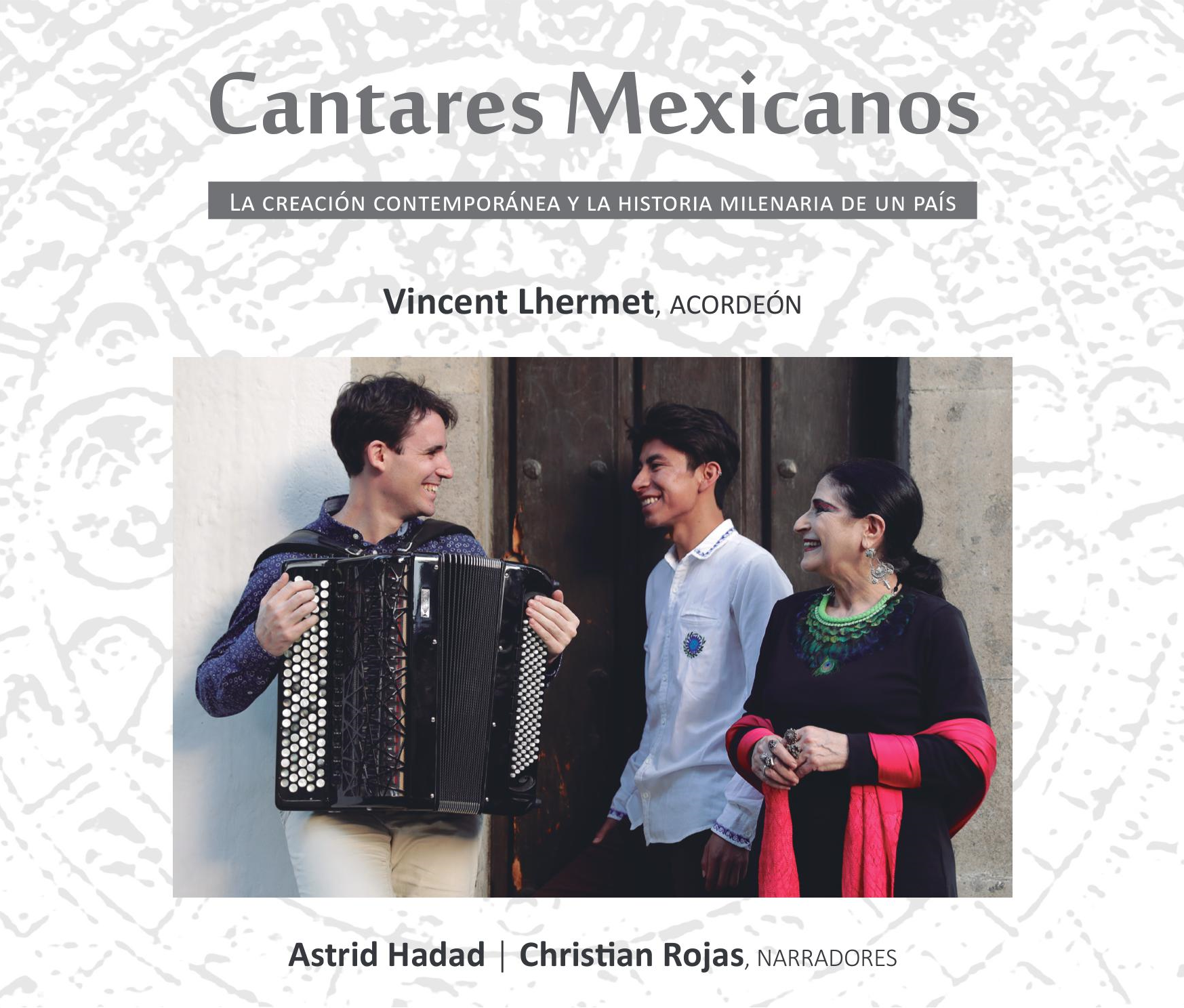
Concert Cantares Mexicanos
Astrid Hadad, narrator in spanish (recording)
Christian Rojas, narrator in nahuatl (recording)
Tout juste 500 ans après la conquête du Mexique par
Hernán Cortes en 1519,
les civilisations précolombiennes paraissent toujours
très présentes dans le
Mexique d’aujourd’hui et dans
l’imaginaire de ses artistes contemporains. La
langue des Aztèques, le náhuatl, deuxième langue parlée
au Mexique après
l’espagnol, compte aujourd’hui environ 1
million et demi de locuteurs.
Cantares Mexicanos
est un recueil de poèmes en langue náhuatl retranscrit
par les Espagnols en alphabet latin au XVIe siècle. Ces
textes, autrefois accompagnés de tambours, nous font
entrevoir la pensée complexe des Aztèques.
Le programme du disque
Cantares Mexicanos
nous fait entendre l’un de ces « chants », en
náhuatl et dans sa traduction en espagnol, écrit pour le
souverain guerrier et poète de Texcoco, Nezahualcoyotl.
Ce poème en cinq parties nous plonge, au moment de la
Conquête, dans le Mexique des Aztèques qui anticipe sa
perte à venir et celui des Espagnols, associant lyrisme
et violence, deux caractéristiques que l’on
retrouve aussi bien dans la création contemporaine
mexicaine que dans l’identité sonore de
l’accordéon.
7 oeuvres mexicaines récentes pour accordéon solo
s’entrelacent avec ce
Chant de Nezahualcoyotl
: elles s’en inspirent et se font l’écho
d’un monde et d’une temporalité bien
lointains qui nourrit toujours notre époque.
Ce projet, réalisé avec le soutien des Ambassades de
France et du Mexique,
rappelle, par la création, la nécessité pour les peuples
de préserver leur histoire et leurs langues,
puisqu’un « pays ne peut pas pousser sans ses
racines ».
Vincent Lhermet, accordéon
Astrid Hadad, narrateure en espagnol (exregistrement)
Christian Rojas, narrateur en nahuatl (enregistrement)
